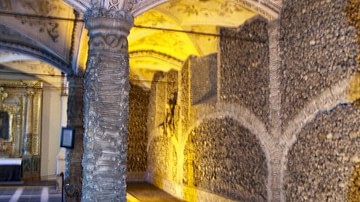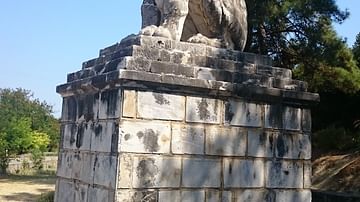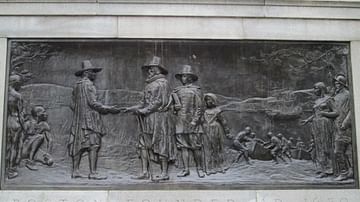Search
Remove Ads
Advertisement
Search Results

Definition
The Ancient City
In the study of the ancient world a City is generally defined as a large populated urban center of commerce and administration with a system of laws and, usually, regulated means of sanitation. This is only one definition, however, and the...

Article
Mesopotamian City Laments - Suffering And The Will Of The Gods
The question "Why do bad things happen to good people?" has been asked for millennia, probably since before writing was invented, but at least since circa 1700 BCE when the Sumerian (and later Babylonian) poem, Ludlul-Bel-Nemeqi (also known...

Article
Chester: A Time-Travelling City
It is said that Chester is the richest city in Britain in terms of archaeological and architectural treasures. One of the finest strategic outposts of the Roman Empire, it is one of the few walled cities left in Britain today. Rachael Lindsay...

Article
Skulls, Temples & Churches: A Visit to the Walled City of Evora
The sunbaked plain of the Alentejo region in central Portugal is called planicie dourada (golden plain) by the Portuguese, and it is dotted with cork oak forests, vineyards, olive groves, and hilltop towns with whitewashed houses. 'Alentejo'...

Article
City on Both Riverbanks - Visiting Amphipolis
This visit filled me with great pride. I was about to explore the history of my home region. The things that were happening ages ago to the place that my ancestors called home. My home city, on the banks of the Strymon river, is a very ancient...

Article
Visiting the Ancient City of Babylon
We had a 4-day national holiday. Meaning what? No clinic and no hospital! I said to myself, “It's been a long time since I have visited Babylonia.” I drove my car for about 11 hours, continuously. Finally, I was there. I went to my uncle's...

Article
A Model of Christian Charity and the City on a Hill
A Model of Christian Charity is a sermon delivered by the Puritan John Winthrop (l. c. 1588-1649 CE), second governor of the Massachusetts Bay Colony, either just before or after his ship, the Arbella, set sail from England for North America...

Article
Caesar As Dictator: His Impact on the City of Rome
Gaius Julius Caesar (100-44 BCE) first assumed the role of dictator in 49 BCE, however, once he had secured his election as consul for the following year, he resigned after 11 days. After defeating Pompey at the Battle of Pharsalus in 48...

Article
An Ancient City Beneath Rome: Visiting The Catacombs of Priscilla
Any visitor to Rome will want to see and explore the popular historical and cultural sites - the Colosseum, the Forum, the Trevi Fountain and, of course, the Vatican. But a large part of the city's ancient history actually lies underground...

Article
Mandu - City of Joy
The city of Mandu is situated about 35 km from Dhar in the Madhya Pradesh region of northern-central India. Most of the city's monuments date to the 15th and 16th century CE. The city is located on a hill which rises 633 m above the sea level...